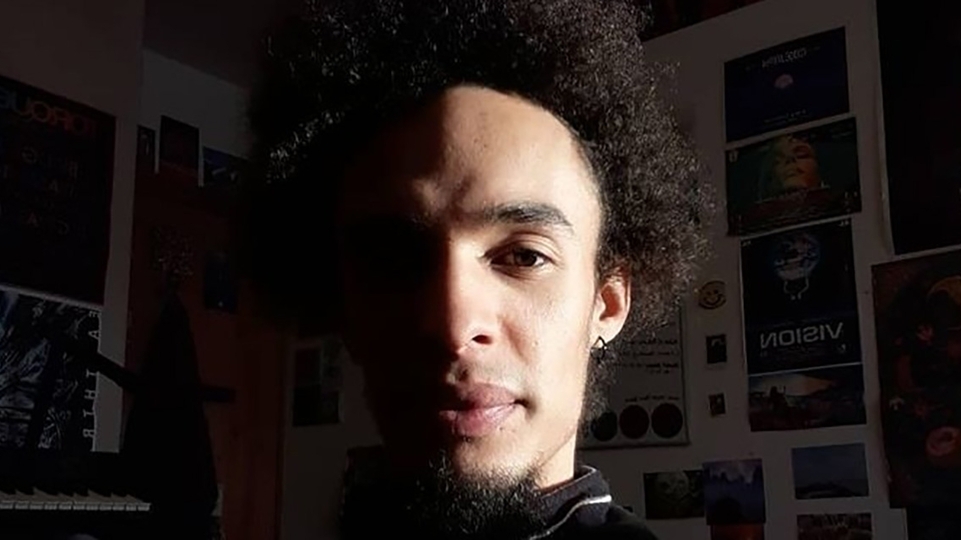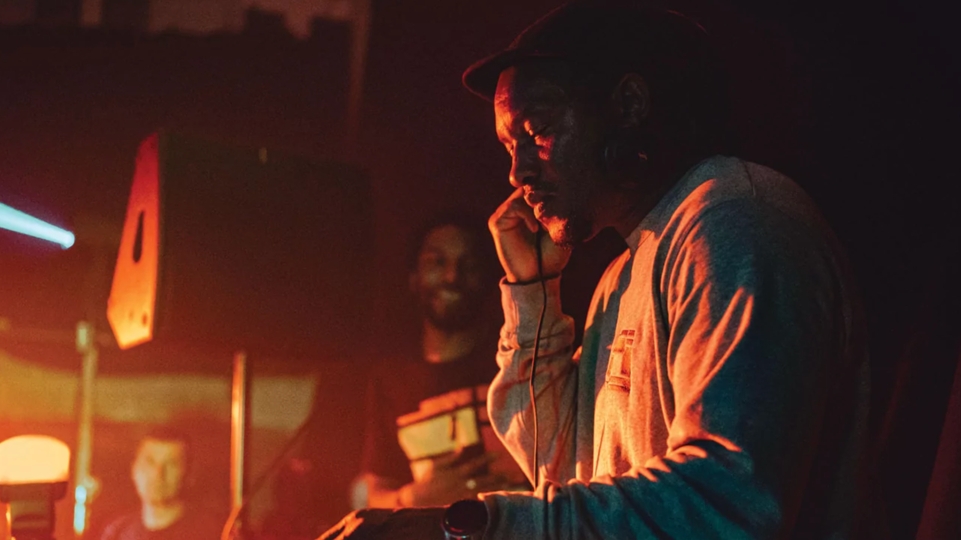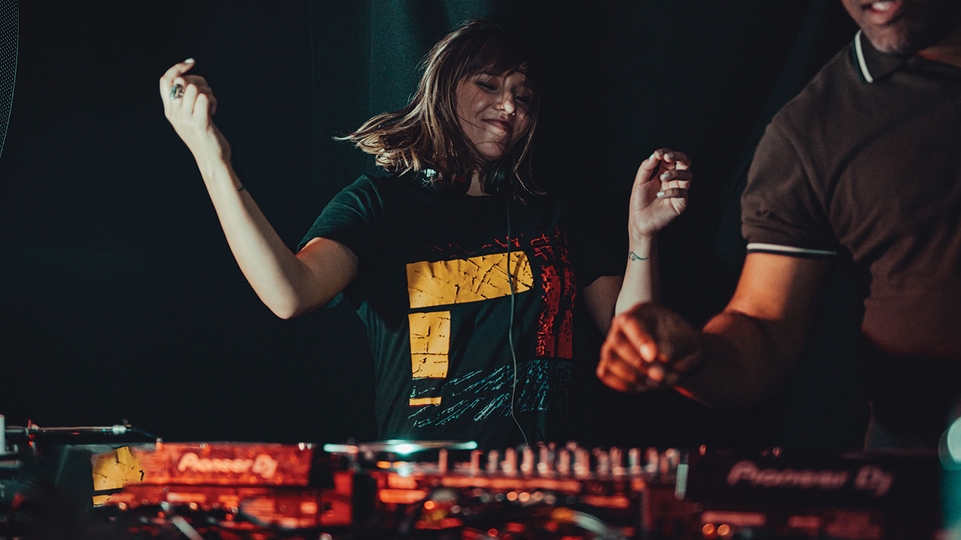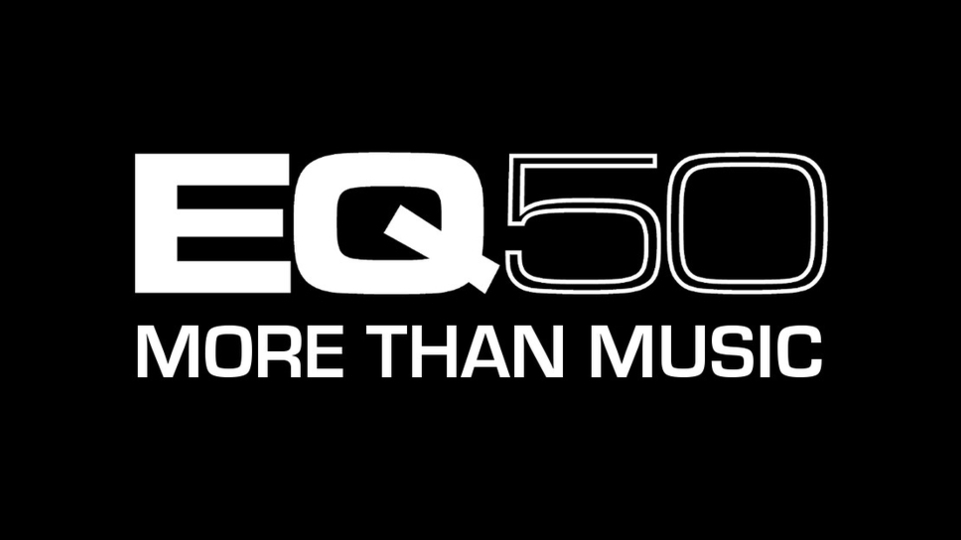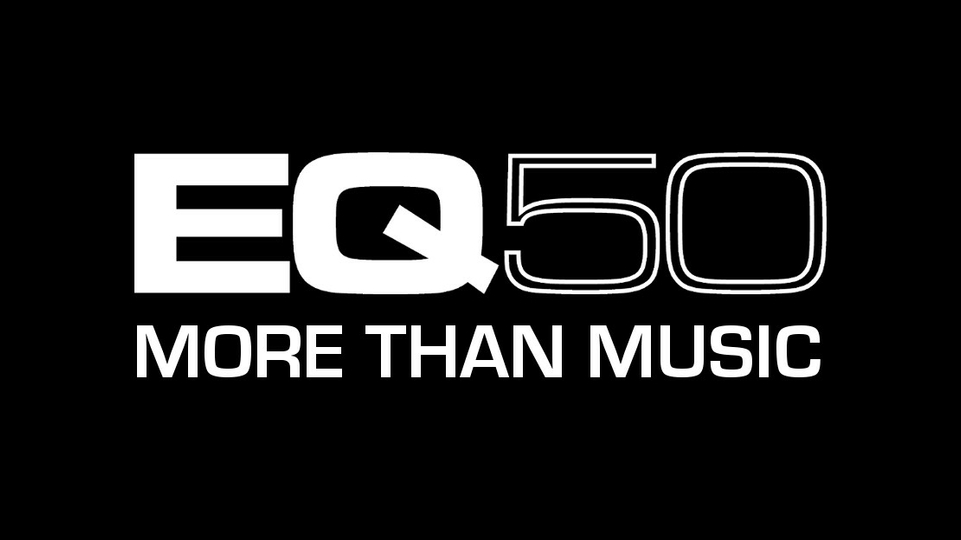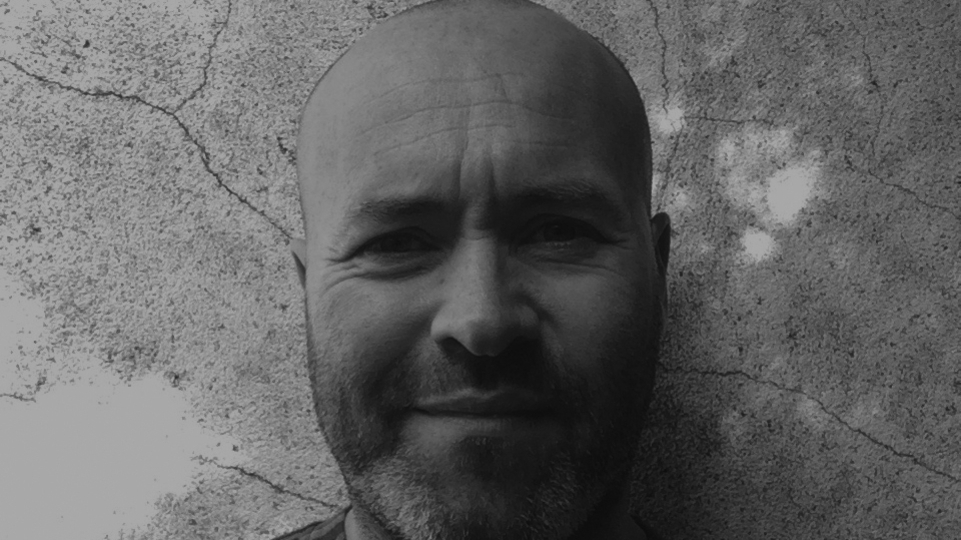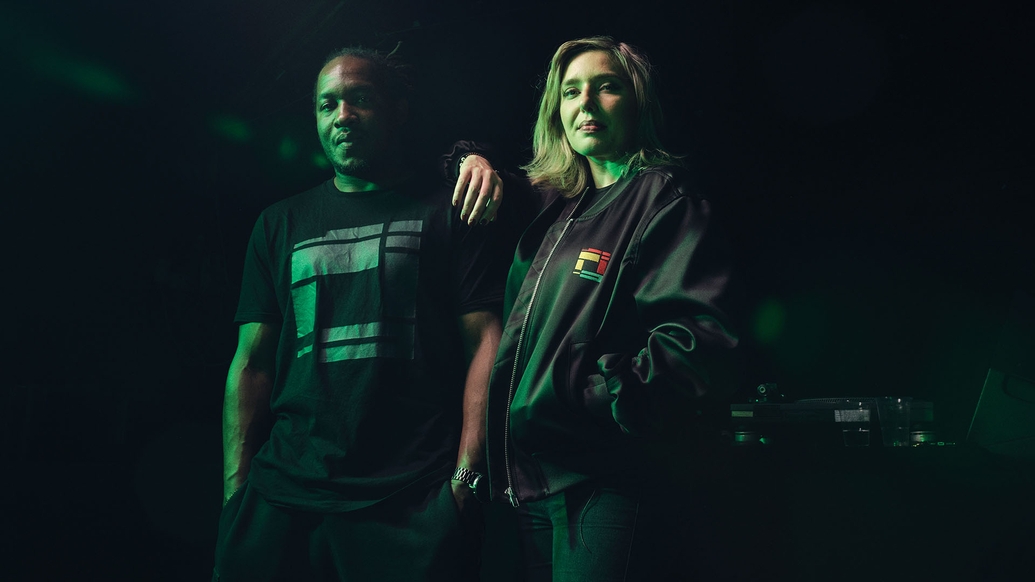
Rupture’s Mantra and Double O are joining jungle’s roots to its future
More than a club night and record label, Rupture has become a nexus point for the global jungle/drum & bass community, helping to galvanise a new generation while re-energising seasoned heads. Founders and life partners Mantra and Double O tell DJ Mag’s Ben Hindle about its evolution, and the importance of championing inclusivity and musical freedom
It’s early April and nearing 8am at East London nightclub, FOLD. The spirited vocal of DJ Vibes & Wishdokta’s ‘Midsummer Mist’ is cutting its way through the heavy air. The tune completes a typically expansive and engaging set from one of the event’s co-founders, Mantra, before she hands over to the other brain behind it, and her partner in life, Double O. This is Rupture, a nexus point for jungle/drum & bass fans the world over.
Renowned for its friendly atmosphere and unfaltering dedication to the scene, at Rupture, crate-diggers’ classics from the wildly fertile ’90s sit alongside bleeding-edge modern jungle and all sorts in between. Battering Amenism rubs shoulders with elasticated drumfunk, the obsidian thump of dubby halftime and laser-cut tech-step weaponry. Foundational artists and new kids on the block are held in equally high regard; people otherwise separated or even marginalised by age, race, gender or sexuality are welcomed, in the booth and on the dancefloor. The roots and the future join forces — history is both appreciated, and made.
Launched in 2006, Rupture was a response to a lack of opportunities. Though keen ravers and DJs, Mantra and Double O were finding it hard to score gigs in London. “We thought, ‘Let’s start our own thing, let’s develop our own community and family’,” says Double O, otherwise known as David ‘Dubz’ Henry, when we meet the couple at a greasy spoon near their home in North-West London. Fifteen-and-a-half years on, it’s safe to say that mission has been accomplished.
“From the beginning we wanted it to be open,” continues Mantra, aka Indra ‘Indi’ Khera. “The idea of bringing people through had to be at the forefront. I knew how shit it felt when people would belittle you, humiliate you, ignore you. I just don’t want anyone to ever feel like that, so we always made sure there would be space for people to come through, that we would listen to people’s mixes and everyone that came would always feel welcome — there wasn’t that ‘us’ and ‘them’ divide.”
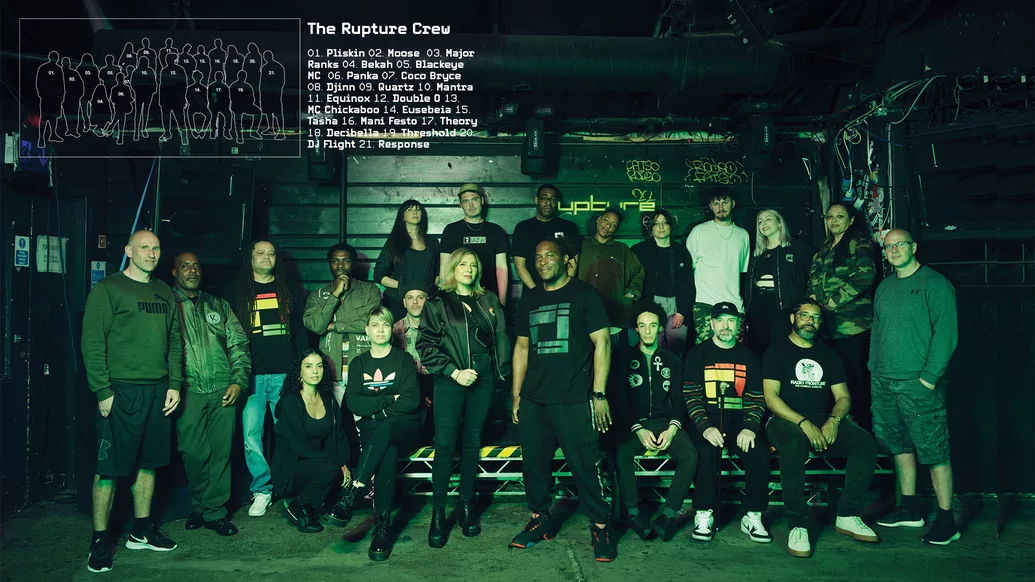
This nurturing attitude still drives Rupture today. Though they’ve both become more confident and better at delegating over time, the pair used to worry a lot about each event. They’d constantly wander around, making sure the artists were ok, checking the sound quality, ensuring the vibes were as good as they could get. Even today, Indi and Dubz can always be found greeting people at the door or dancing by the booth, rather than tucked away in a green room.
It’s been a slow rise — it wasn’t until Rupture’s second birthday event at its now-spiritual home, Corsica Studios, that Indi knew they’d really created something special — but rise, it has. Now, devotees travel from as far away as the west coast of the USA for a single night on the Rupture dancefloor.
The family Indi and Dubz have built is a close-knit but ever-expanding one. For their DJ Mag cover shoot, the pair invite 19 artists who regularly feature at nights or on the associated label, but probably could have called in twice as many. DJs like Equinox, DJ Flight, Coco Bryce and Panka can be found at practically every event, alongside MCs Blackeye, Chickaboo, Major Ranks and Moose. Rupture’s label wing — launched in 2012 — has put out Mani Festo’s searing acid juggernaut ‘Warehouse Theory’, the dread stomp of ‘Lifeforms’ by The Untouchables, Forest Drive West’s ubiquitous 2016 roller ‘Jungle Crack’, and the pressurised d&b cut ‘Longers’ by Antidote (RIP), alongside many more buy-on-sight releases.
Speaking to some of the crew, the same points come up time and time again when discussing why Rupture is so precious to so many. Hungarian DJ, and Indi’s longtime best friend, Panka sums it up best: “It’s all about family and getting together to worship the music that we love.”
“It’s a safe place to come and rave. Fundamentally raving is about music, but it’s become diluted along the way; Rupture is just real,” adds veteran MC, Major Ranks. “Their heart and soul is in this, they’re not in music for fame or money,” he says of Indi and Dubz. “They don’t have to do it, but Rupture is them and they really are two of the most genuine people. Without them there would be no Rupture.”
“I think Rupture has unknowingly paved the way for the entire [modern jungle] movement, the way that they’ve supported so many people from so many places in the scene. I think it’s at the heart of all of it,” Mani Festo tells us. “It’s love, it’s a community. You come [to Rupture] as a raver, as an artist, whatever involvement you have, it’s the same faces, and the new faces are integrated into it so well. It’s just such a welcoming community of great people.”
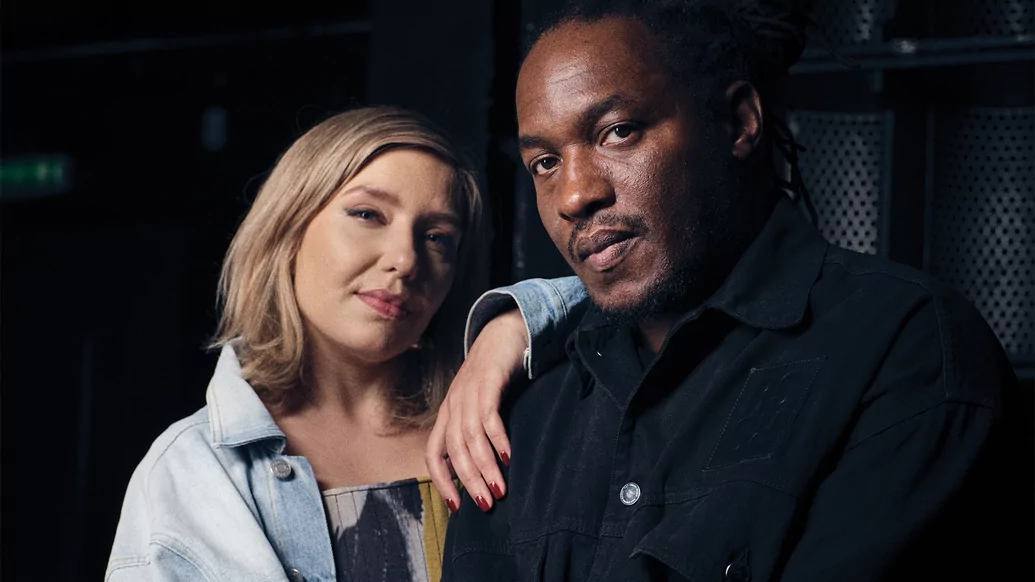
“If there aren’t young people coming through, how’s it gonna continue into the future? You’ve gotta embrace it, you’ve gotta nurture these young artists and bring ’em through” – Double O
While jungle/drum & bass never went away — and certain forms like liquid and jump-up have thrived elsewhere — the past half-decade has seen a sound that draws heavily from the genre’s roots propelled into the rudest health it’s had since jungle’s formation. “It just feels in a wicked place at the moment,” says Indi. “Everyone’s making music, sending each other music — the inspiration is sparking off each other. All of this cultivates better music, it pushes everyone... their enthusiasm keeps you on your toes. Seeing other people step up makes you step up. It feels great.”
Right around the globe, pockets of junglism have been bursting open, reigniting the genre’s original boundary-pushing ethos and taking it to new heights. Artists like Tim Reaper, Coco Bryce, Sully and SHERELLE have come through pushing vibrant and varied sounds, blending jungle with techno, grime, footwork and other hybrid styles indebted to soundsystem culture. All have been championed by Mantra and Double O from early on. “The most rewarding part of being in music is seeing your peers thriving,” says Indi, while Dubz waxes lyrical about Tim Reaper: “When people say, ‘If you work hard you’ll go far’, Tim defines that.”
“He’s so deserving; they all are,” continues Indi. “Completely true to their craft, true to themselves. Those are the people you want flying the flag and getting their flowers in the way that they should be.”
Supporting new artists is at the heart of Rupture. “If there aren’t young people coming through, how’s it gonna continue into the future?” says Dubz, who also works with young people outside of his music career. “You’ve gotta embrace it, you’ve gotta nurture these young artists and bring ’em through.”
“This isn’t about us, this isn’t about Rupture; this is about the music being driven forward and the whole culture, leaving a legacy and wanting it to build,” says Indi. “New ideas for young people to create their own scenes and their own crews, that’s what we need to really be putting a lot of effort into.”
Dubz tips Jack Rapture as one new producer to look out for: “He’s really humble and he sent me some music, and it blew me away.” N.E.GIRL too, says Indi: “I think there’s something about her that feels quite special.” Decibella, Sheba Q, No Nation, Silva Snipa and the Club Glow crew (Denham Audio, Borai, Mani Festo and LMajor) also get shout outs. “These are people who are obsessive about the music to a geek level. That’s the kind of passion you need to not just drive yourself forward, but to be able to create movements and push the people around you forward,” Indi enthuses.
But it’s not just the youth Rupture celebrates and inspires. The event has a long history of reinvigorating veterans of the scene, whether through bringing them in to play or from experiences on the dancefloor. In a recent documentary marking 25 years of his label, AKO Beatz, DJ Stretch credits a mind-blowing experience at Rupture as the instigator behind his return to the scene. Similarly, Rupture inspired seminal producer J Majik to get back into releasing music after a notable hiatus.
Swedish drum & bass stalwart Seba has played Rupture multiple times over the years and released a track on Rupture’s excellent 2018 compilation ‘The Fifth Column’; Indi believes he’ll be a key driving force in jungle’s evolution in the coming years, likening his new material to “Danny Breaks [if he] was making music in a parallel world”.
When it comes to old school heads, the pair have a long list of names who they’re still trying to tempt into a Rupture performance — Photek, Pascal, Potential Badboy — though they’ve learnt it’s sometimes better not to keep pushing if an artist’s heart isn’t in it. While the vast majority of bookings nail the vibe, there have been a few disappointing sets from artists who haven’t understood the Rupture faithful’s deep appreciation for the roots of jungle.
“They think it’s just another bait night playing old school anthems,” Double O says of the reason some veterans don’t want to play. “And the whole point is, we don’t want them to play what they think they should play at some random old school night,” Indi finishes. “What we’re asking for is a little bit more, and so it’s better that people say no, rather than take the bookings and not think about the night they’re playing at.”
With the pioneers who do play — particularly those who have become close friends, like Flight and Digital — Indi says she still has to pinch herself somewhat to believe it; she’s still a true fangirl at heart.
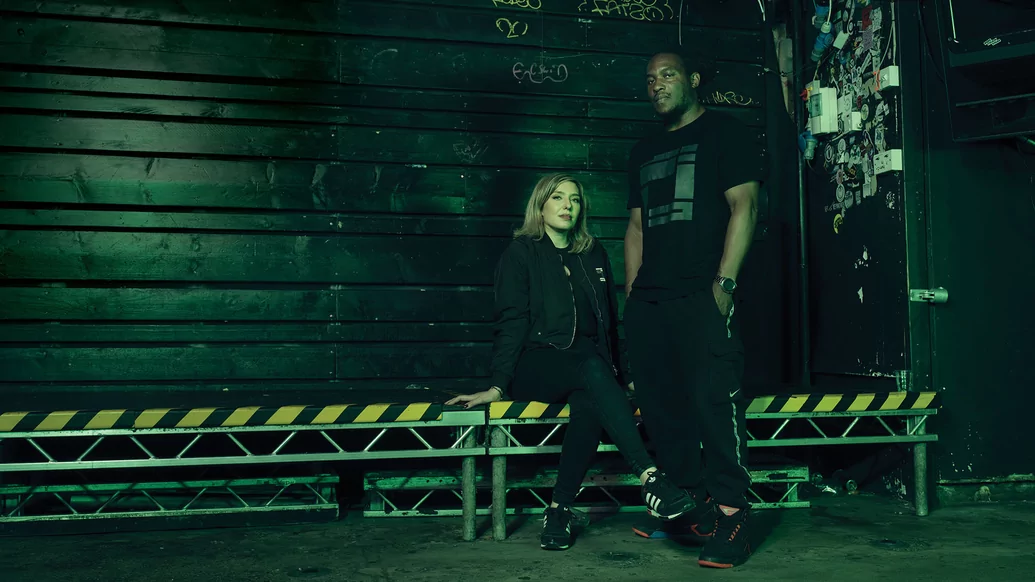
“Sometimes I’m like, ‘Oh my god, this crowd is so sick, we’ve got loads of different ages, different races’, and those are the best raving experiences you can have — people from all walks of life, together, connected through music. It's really, really powerful" – Mantra
Whether old school or new, what’s clear from all the artists we discuss is the emphasis Dubz and Indi put on diversity. They have “lists and lists and lists and lists” of potential bookings and combinations, and though a mix of ages, races and genders definitely occurs naturally to some extent, it’s still something they’re absolutely conscious of when putting together nights. Though they’d never “drastically change a line-up,” Indi says, they consider who will work together musically and what looks good on a flyer, “and then we jiggle it around to just make sure”.
Sometimes, they might decide to push a male DJ back to the next gig, if the current one is lacking women. They’ll even swap how high their own names go on the flyer, depending on how balanced the rest of the line-up is — such is the impact visibility can have on people’s perception of DJs from underrepresented groups. “We do think about it a lot, but it’s not difficult,” says Indi, matter-of-factly. “It is easy,” reiterates Dubz. “That’s why I’m still so surprised when I see certain line-ups, ’cause I think there’s been enough shouting about it. It’s a simple process, so people are actively not doing it. You can’t say, ‘Oh, we didn’t know’.”
They understand times have been hard for promoters since the pandemic — Rupture itself has seen drop off rates increase to as much as a quarter of tickets at one event, while booking fees and other costs are soaring — but say it’s difficult not to be offended by the way some promoters seem unwilling to change, despite all the conversation around diversity in recent years.
“Particularly since 2020 and the Black Lives Matter movement, the spotlight has been on. Everyone has been looking at big organisations, looking at themselves, their family homes, their friendship groups, everything like that,” says Indi. “We’re questioning the idea of racism and how deep it goes within us all. So if you’re then putting on nights — and again, this is Black music — and you’re still putting on all-white line-ups, I actually find it quite aggressive in a way. It’s almost like an attack, when you’re not gonna book women and you’re not gonna book any Black people, then it’s like making a stand that you don’t give a shit about music culture, other people and diversity at all.”
Indi has also been driving change through EQ50, a collective including Flight, Sweetpea, Chickaboo and more, who work towards fairer representation for women and non-binary artists in drum & bass. In early 2018, appalled by the lack of women being booked by several of the biggest promoters in d&b, Indi laid out the grim statistics on social media for all to see. EQ50 was born soon after and went on to launch a game-changing mentorship initiative in 2020, pairing five rising artists with tastemaker labels such as RAM Records, V Recordings and Shogun Audio. Though the crew had initially been worried about their lack of experience or even the appeal of such a scheme, Indi says the results have gone “beyond our wildest expectations”.
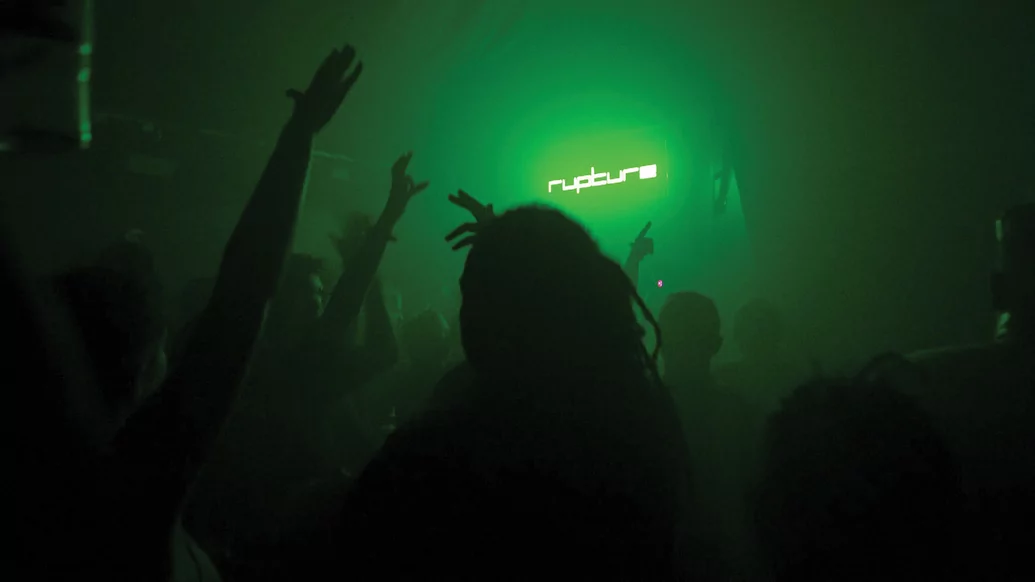
Focusing on producers, the huge number and incredible standard of applications made the crew realise “there’s so many women, non-binary and trans artists out there who we had no idea about, who are there in their yards making music all day, every day; killing it; not quite sure who to send it to, not having the confidence to put it out there,” explains Indi. “It’s been such a powerful experience for all of us, we’ve learnt so much.”
Almost all the mentees have signed music with their associated labels, “which was never a criteria,” she continues. One particular success story has been that of Nia Archives, who was linked up with Bryan Gee’s V Recordings. Over the past year-and-a-half, Archives has become a national figurehead for the young jungle scene, gaining BBC Radio 1 support for her hazy, vocal-led sound and winning an NME award for Best Producer in 2022.
“She’s in her own lane and she needs to ride it, ’cause it’s great and it’s true and it’s authentic,” says Indi. “She is in it on a deeper level in terms of the cultural side. She is in this in a way that is bigger than herself — to contribute to it — and I think it’s brilliant.” Round two of the EQ50 mentorship programme is set to launch later this year.
At Rupture, diversity in the booth is being reflected on the dancefloor, though both Indi and Dubz say it’s still very much a work in progress. “Having people of colour come out again, and not going to a place where it’s just white people only, that’s amazing,” says Dubz.
“It varies quite a lot,” admits Indi. “Sometimes I’m like, ‘Oh my god, this crowd is so sick, we’ve got loads of different ages, different races’, and those are the best raving experiences you can have — people from all walks of life, together, connected through music. It's really, really powerful. That’s the only time they would ever be in the same room together. It’s quite spiritual. And then some nights that we have, I’m like, ‘Hmmm’, I dunno why it’s just not as diverse.”
When we catch up over Zoom a few days after Rupture’s return to Corsica in June, the pair are particularly enthused about the crowd that night. “I saw trans people in there; Black, white, Asian,” says Dubz. “There was a vogue ballroom dancer host who was there,” adds Indi, excitedly. “Still a long way to go, but it felt brilliant. And that could be because of jungle being a wider thing now, but our line-up was very, very headsy. We didn’t have Tim or Coco or Sully, any of the big ones who are super hot at the moment.”
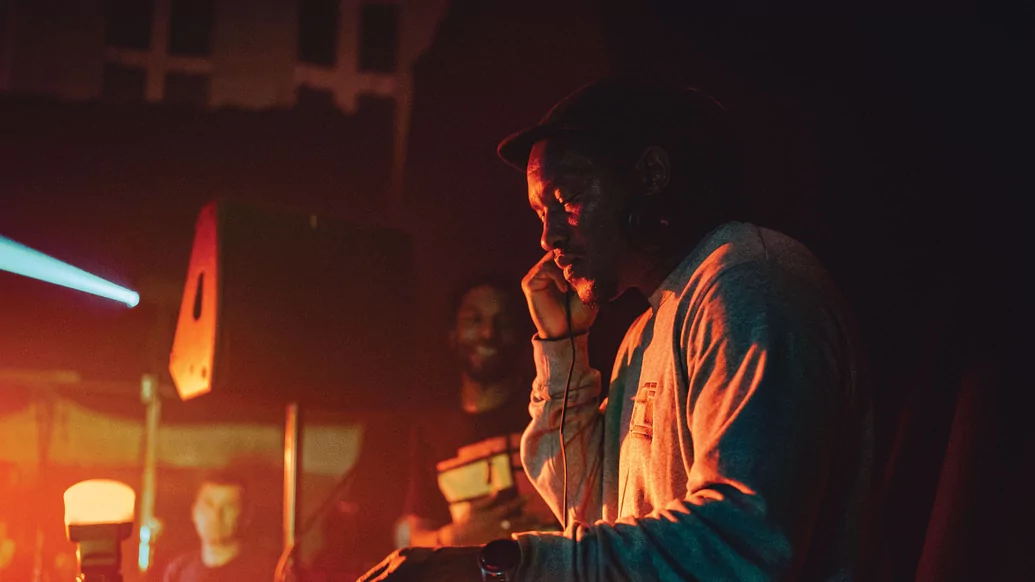
Both Indi and Dubz’s journeys in jungle/drum & bass date back much further than Rupture. Dubz grew up in the South Yorkshire town of Doncaster in the ’70s and ’80s. “It was a small town, but there was about 15 different sounds, every Black family had a sound, it was like a thing,” he chuckles, “and everyone was clashing with each other.”
His older brother had a sound, leaving quite an impression on a young Dubz, who warmly recalls him bringing home records, “illegal parties in his house, police and all that rubbish, my parents arguing with him”. Dubz likens it to the iconic 1980 soundsystem film, Babylon. His cousins too had a sound, called Commando, which Dubz used to sing on. “We were like the Saxon of Doncaster, there was loads of MCs,” he laughs.
As the ’80s progressed, he got into hip-hop and breakdancing, joining a crew called Bass Pharmacy and eventually falling for electronic music, landing a spot DJing on Doncaster pirate, The Power Station, under the alias 007. An early influence was DJ Gary Woods, who developed eclectic mixes of nascent house and techno alongside soul in the second room at local spot Seventh Heaven.
Woods then became one of the first DJs at now-legendary Doncaster venue The Warehouse, before artists like Nebula II, Easy-D, MC Rush, M-zone and DJ Mongoose joined the club, Dubz himself becoming a resident there in ’91, which he maintained for the next six years. The Warehouse became a central hub for the fertile Northern scene. “You had Sheffield coming through, bleep stuff, Nottingham, people from London coming up, Birmingham, Leeds, Lincoln — all these places and it was ram-packed every night,” says Dubz, who spent the next few years playing all across the North and scored a release on seminal label Formation Records, run by DJ SS out of Leicester.
But around the mid-’90s, “it started going downhill”. Dubz had been bitten hard by the jungle bug, but was growing frustrated at the lack of interest in the sound up North. “It was always in the backroom, or you’d play jungle in a techno thing and everyone would just stop dancing, it would only be the heads who would be in it,” he says. He decided to move to the source — London — but that presented its own problems. “I was like a little guy in a big pond, I was nobody,” he says. Not the kind of person to leverage his success up North for gigs down South, he dropped the name 007, taking up Double O instead.
Even the London scene wasn’t cutting it for him, though. By the late ’90s, drum & bass was “in a weird place,” as Dubz puts it. The traditional breakbeat foundations had been dropped in favour of sparse, formulaic kick-snare combinations, while another genre, UK garage, had begun to take hold of the public consciousness. “I almost had all my music equipment with a big towel over it in the corner,” he says. “Musically I didn’t know where I was and I kept hearing all this jump-up — I’m thinking, ‘Do I like jump-up?’ It was weird.”
But salvation was just around the corner. Through playing Xbox, he met DJ Future, who in turn introduced him to Indi. She and Dubz began going out raving regularly with friends Panka, Equinox and Threshold, becoming regulars at clubs like Herbal and The End, where nights like Bassbin, Technicality and Renegade Hardware served up more palatable beats.
“It was Technicality nights that really got me back into it, ’cause I would hear breaks again. Then I won a [DJ] competition there — no, I came second, should have won,” says Dubz, letting out another trademark hearty laugh, “and kind of got the love for it again.”
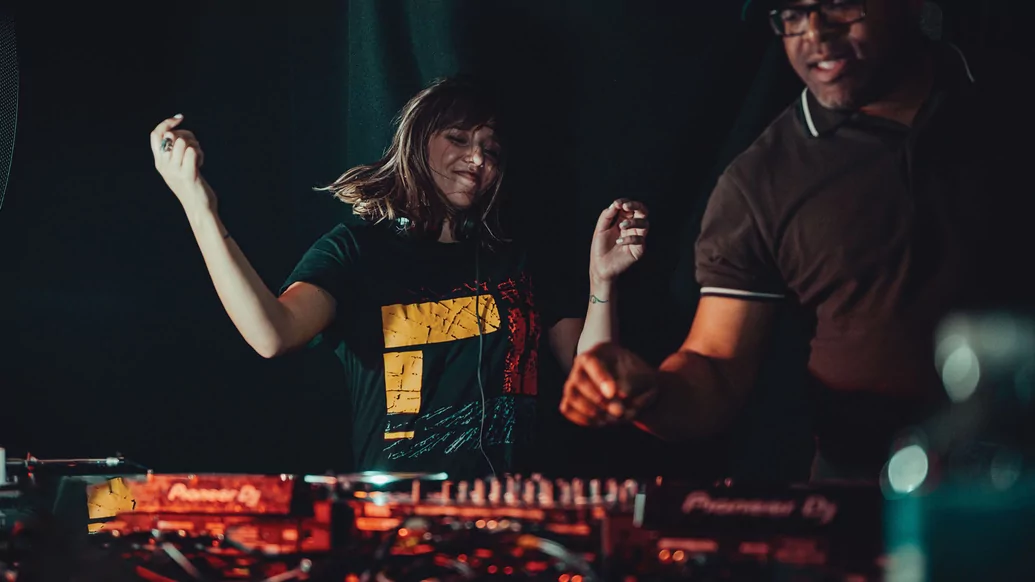
Indi, meanwhile, is North-West London born and bred, and also grew up with a lot of music at home. Her mum was “kind of a hippie” and would play the likes of Leonard Cohen and Joan Baez, and she’d hear Punjabi music going to various celebrations and events at the gurdwara. Indi’s dad even set up a Punjabi music radio station when she was 16, though she admits he didn’t play much at home before that. It was her older brother she idolised most, however, so in the late ’90s, his love of UK garage became hers. It was Indi’s brother who took her to her first rave — “Exposure 2nd Birthday at Bagleys,” she reels off as if it were yesterday — in 1998, when she was just 14 years old. But it didn’t last long; after a short but intense period of garage raving, Indi went to her first proper drum & bass event: Innovation, at East London’s infamous Stratford Rex.
“It was almost like my whole perspective changed,” says Indi. She explains how, though she enjoyed the music, garage raves were also about getting dressed up in a way that catered to the male gaze. “When I look back on it now — and I was actually a child when I was going to these things — you would get grabbed up all the time. I was wearing tiny dresses, massive heels, skimpy shit, because to me that’s what made me older. Somehow you got this confidence, and actually I was really vulnerable in those clubs.
“When I went to my first drum & bass rave and I was just in trainers and tracksuit bottoms, and I took my first ecstasy, then it was like, ‘Oh my god, don’t talk to me’. I would go raving and be like, ‘just leave me in the corner and I’ll see you at six in the morning’... dancing from start to finish. From then, it really was just about the music.”
Though she already wanted to work in the rave scene, it was going to drum & bass parties that inspired Indi to become a DJ. “I was like, ‘I wanna be part of it in the biggest way possible, and that’s behind the decks’.” As it happened, her dad had a spare pair of Technics, and thus Indi’s future was sealed.
Her dad would also go on to be the source of the name, ‘Rupture’. “We were gonna call it Spectrum, and then we were all having a discussion about it, and my dad goes, ‘It’s about crossing borders, you need to rupture through’, and we were like, ‘Oh my god, that’s the one!’”
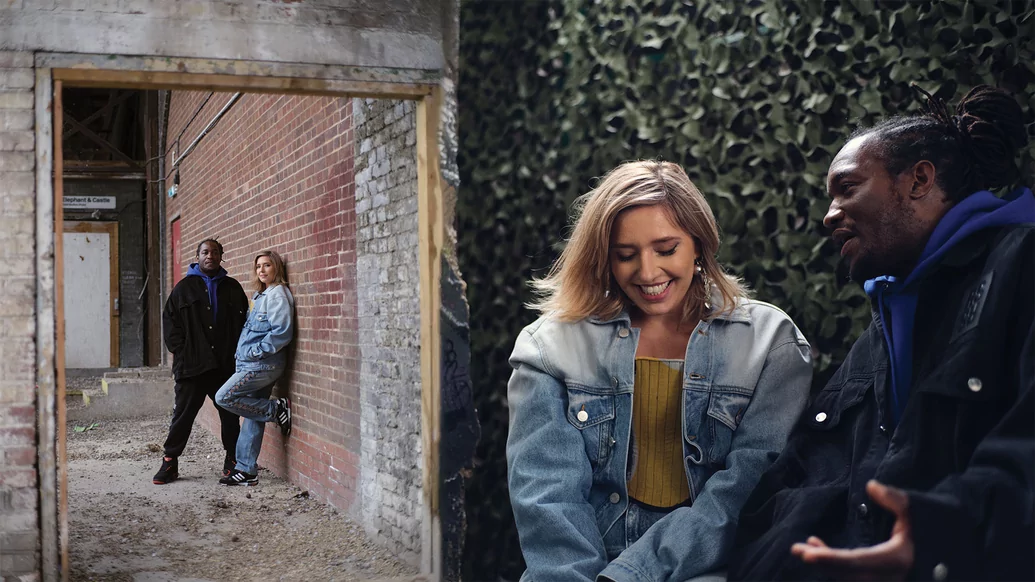
After the pair met in 2004, they “would go out, as mates, all the time. And we started on pirate radio together,” explains Indi. “We were friends... for a while... not that long.” She cracks a coy smile at Dubz.
Almost two decades on, it’s clear to see their love for each other is absolute. Though very much individuals — Indi all bubbling energy and chat; Dubz quieter, though constantly dropping one-liners — they are on the kind of wavelength reserved for life partners. Our conversation is filled with laughter, smiles and back-and-forths between the two, and though they may disagree or even gently bicker at points, it’s touching to see how, if one displays anxiety or self-deprecation, the other is there in a split second with words of heartfelt encouragement.
They have three children of their own now, and have also made the ultimate commitment... “That really was a big moment,” says Indi, “when we decided to share our records.” “That was like marriage,” Dubz chips in.
“Yeah! We’re not married, but that was like, ‘Oh my god! We’re actually gonna share our record collection — that’s deep’. He ain’t going anywhere!” beams Indi, feigning possessiveness before bursting into laughter.
And what about the kids, are they raising a brood of next-gen junglists? At eight, five and two years old, they have varying levels of interest (and embarrassment), we’re told. “They like getting involved, but we don’t force nothing on them,” says Dubz, on how the kids seem to enjoy the music-making process.
“I don’t know if they’ll be into it when they’re older, but they’re curious about it for sure,” adds Indi. Raising a young family requires time and energy — things which can be in short supply when you work the kind of unsociable hours that DJing requires. In the past, Dubz and Indi have often alternated bookings to ensure they both get a chance to play out and parent. But, with both their profiles skyrocketing over the past few years, we wonder how, or if, they’ve managed to retain the balance.
It’s hard, they admit, but between Indi’s family, who all live close by, and a trusted babysitter, the kids are well looked after when both mum and dad are needed in the club. And there are upsides: like being around during the week and taking the positive energy from a good gig back home, says Indi. But she admits it has impacted her ability to make music. By the time the kids have gone to bed, it can be late, and there are Rupture, EQ50 and admin tasks to be done.
“The DJing thing is like a different part of your brain almost,” she says. “That I can do. It’s intuitive, it’s instinct, it’s reading the crowd, it’s being there fully present in the moment — for me, that’s what makes the best DJ sets. But with making music, where it is tough and it is hard and there can be a lull... it’s like a muscle that needs to be worked, and the longer I leave it, the more I feel like it’s not for me.”
Though relatively small, Mantra’s discography packs a serious punch. Her 2018 Rupture track ‘Nocturne’ is a particular highlight, with blistering Amen edits that shear through eerie chimes. And despite the difficulty, she recently had a prolific month and has readied an EP for Sneaker Social Club.
“Then suddenly everything’s got busy again, and I’m like, ‘When am I ever gonna have time to make music?’” she says, frustrated. “I think being a mum, you learn that you can’t do it all when you want, and it is a sacrifice, but the kids are never gonna be the sacrifice, they’re always the number one. I know that the time is gonna come again when I’ll have the space in my head [to make music]. But it is difficult, when you do feel the creative side bubbling and those needs can’t be met.”
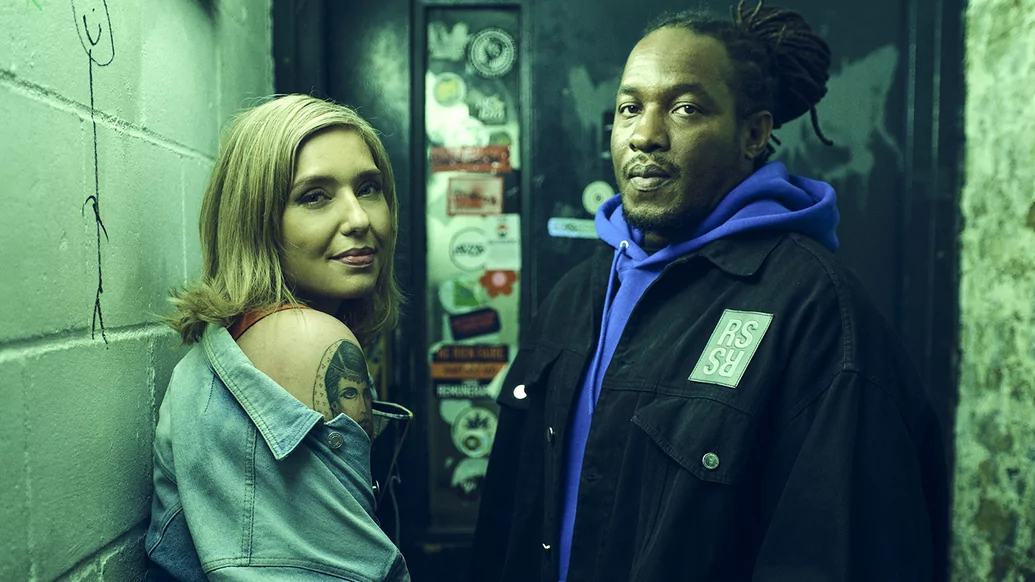
“It’s more than just a club-night. If you’ve had this profound experience at the weekend that you can feel in your body, then you can channel that back into your family, into your work, into your creative output or whatever. That post-rave glow that trickles into other aspects of your life” – Mantra
On the flip side, Mantra’s profile as a DJ has gone stratospheric. Pre-pandemic, along with launching another event called Spirit Level, she was named as a resident for the most iconic London club of them all, fabric, a role she still holds today.
In May this year, she held a one-month residency on Radio 1, presenting four shows spotlighting the clubs that changed her life: Bagleys, Herbal, The End and Corsica Studios. On each, she matched classic tracks with new music she felt would have fitted the vibe of each space, though she says the final show (Corsica) is the only one that’s representative of where she’s at now musically.
Indi’s style regularly pieces together stories from throughout the history of jungle/drum & bass, with a particular penchant for tracks with distinctive grooves and unearthly basslines — something displayed throughout the series too.
Dubz is also an accomplished DJ. “The master of the closing set,” as Indi dubs him, a Double O performance can be a ferocious assault of choppage, but he’s also known for dipping into bleep and hardcore to switch up the vibe and bring some relief to the dancefloor. When it comes to production, he’s incredibly prolific. Along with singles, EPs and remixes on Rupture London, AKO Beatz, Reinforced, Repertoire, Northern Front and DJ Trace’s 117 over the past 15 years, from July to November 2020, in the midst of the pandemic, he dropped a series of seven compilations of unreleased material under the banner, ‘The Lost Files’. Though offering the rough with the smooth, what the collections showcase above all is Dubz’s ability to splinter breaks down into vicious and complex forms. He also shared another seven-track collection, ‘Jack Man Vol.1’, that explores more downtempo, acid and jackin’ house vibes — something he’d like to do more of in the future.
Dubz first started messing around with music when he was just 10 years old. “It’s just part of my life,” he says nonchalantly, as if it were as crucial and automatic as breathing. “I just do it anyway, that’s part of exercising any stress,” he continues. “As soon as the kids have gone to bed, especially if I’ve got gigs coming up, I’ll just be in the studio.”
Earlier this year, Dubz announced his debut album has been sent off for mastering, having had it in the works since before the pandemic. “If it wasn’t for Indi it would probably still be sat there,” he says. “You hear so much good music — if I’m counting the producers, unknown and known, who are sending this music — and you start having self-doubt as an artist; is it good enough?”
The pressure built up and up, and Dubz would just begin new projects, compounded by issues with updates to his MPC that for a time left the album stuck on an old machine. But “Indi was on my case,” he says with a smile, adding that another confidence boost came from a long-running but friendly argument with Tim Reaper, who was desperate to sign the track ‘Riddim Yah’ to his Future Retro label. The late, great Spirit was a fan of another, ‘Love Is’, we’re told.
Eventually, Dubz was persuaded to just get it out there, and he seems pleased with the result. Called ‘Firm Meditation’, he envisions it covering a range of situations — from peak-time Rupture, to others less frantic. “I know I just needed to let go, ’cause some I’ve never played out and some I’ve played out and I’ve seen work,” he says.
“Things just take time,” offers Indi. “I think there’s sometimes this feeling that you have to rush to keep up, but keep up with what? The fucking circus of social media? The album’s on its way...ish, but it’s ready when it’s ready. It’s the same with EQ50, the mentorship took us ages and I’m so glad it did, because every step of the way you’re doing it with integrity and intention, and making sure it feels right.”
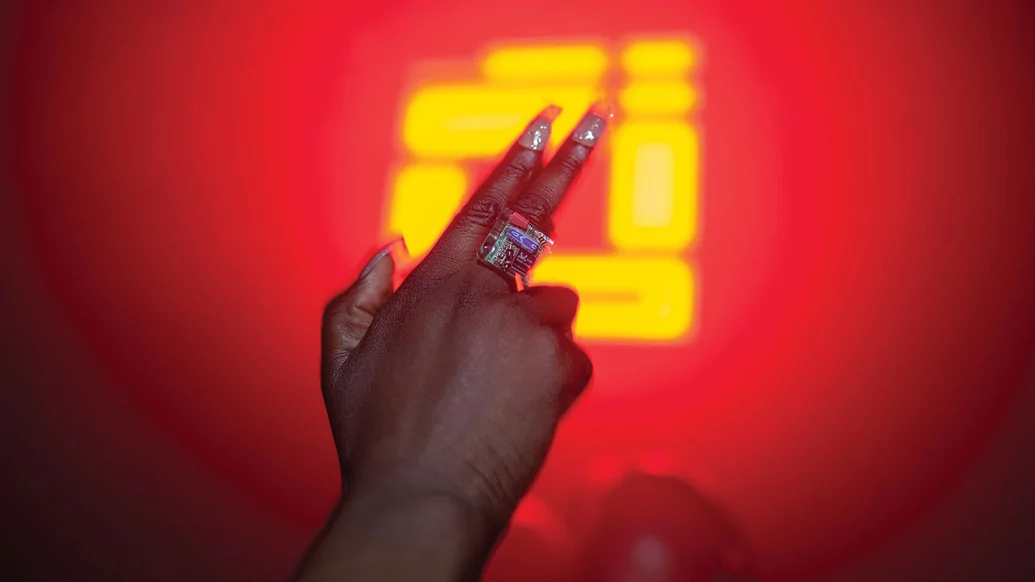
It’s mid-June and nearing 8am at South London nightclub Corsica Studios. After a successful night back on home turf, Double O, Blackeye MC and Major Ranks are conversing on the mic, thanking the crowd for sticking with them and making the night one for the history books. Double O eventually succumbs to requests for ‘one more tune’.
“If we’re gonna do this, we’re gonna do it properly,” he announces. The beat drops in and the unmistakable, gently warping tones of Marcus Intalex & ST Files’ ‘How You Make Me Feel’ begin to reverberate through the system. The music of Intalex, who passed away in 2017, along with that of Spirit and Antidote, is a legacy still celebrated each and every event.
But what of Rupture’s own legacy? Though thankfully there’s no end in sight, Dubz hopes it’ll be remembered as “somewhere where people knew it was real”.
Indi struggles to find the right words. “It’s more than just a club-night,” she says. “If you’ve had this profound experience at the weekend that you can feel in your body, then you can channel that back into your family, into your work, into your creative output or whatever. That post-rave glow that trickles into other aspects of your life... it’s not unique to Rupture, but I really think it does tap into something at a deeper level, and it helps drive creativity forwards.
“So many people have met at Rupture and formed partnerships and friendships, and taken that inspiration into their creative spaces. It’s been on my mind for a while that I need to be able to express it better, because language is so important, but then also with music that’s the whole point, it can be so deep that there are just no words.”
She texts us a couple of days later with a simple summation: “A space that nurtures experimentation and creative freedom, accessible to all.”


